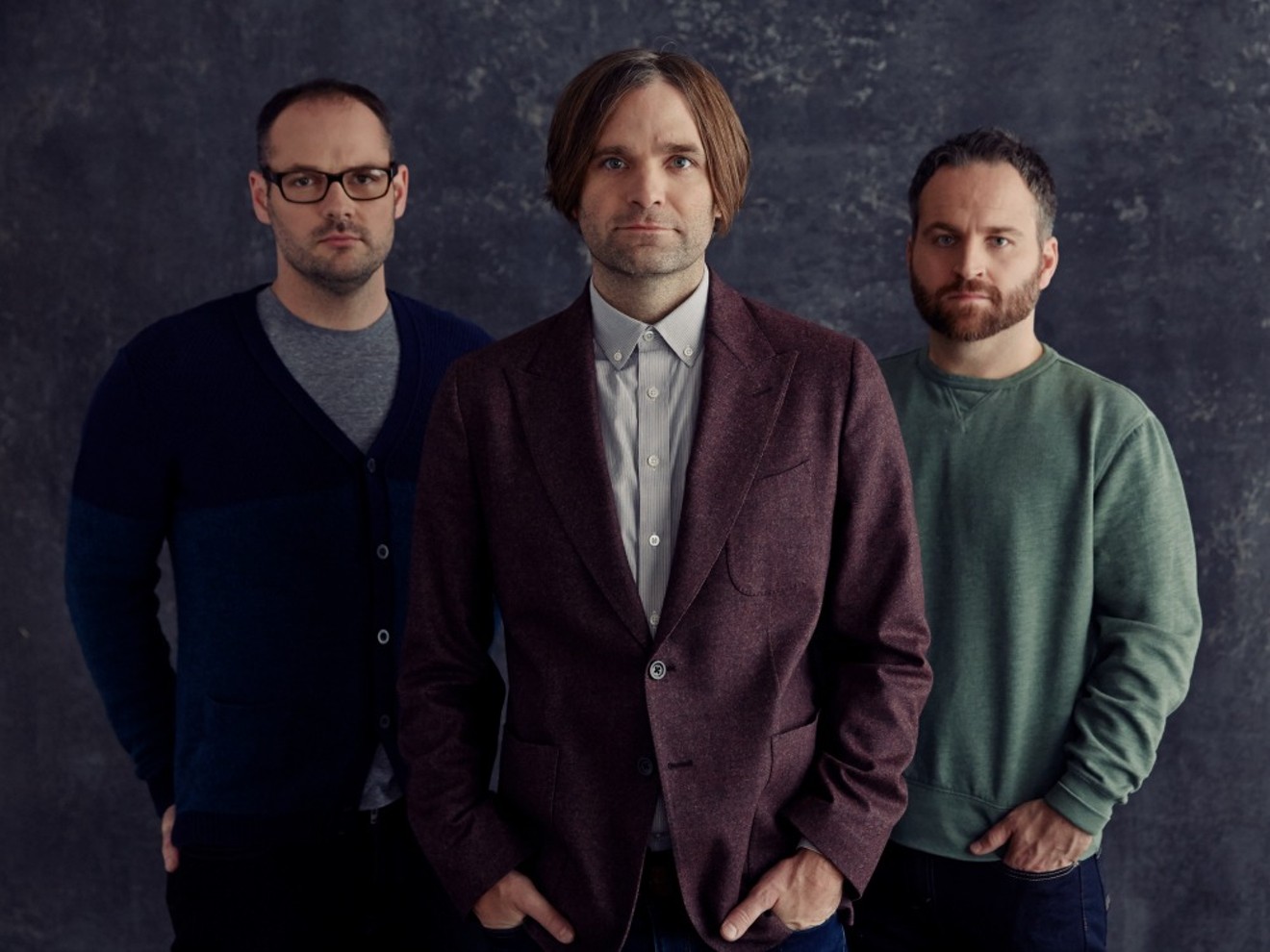After releasing eight studio albums, most bands settle into a comfortable routine. If you've been in the game for this long, the temptation to stick with what works is strong. But if there's one constant in life, it's that change will happen, and you either evolve with it or die. Faced with the biggest change in their career, Death Cab For Cutie chose to evolve.
When founding member Chris Walla left the band, he didn't just leave a guitar & keyboards-shaped hole in their sound: he was also the group's producer, whose sonic fingerprints are all over their recordings. The remaining trio of Ben
We got a chance to talk with Death Cab's bassist, Nicholas Harmer, before the band's visit to Arizona to play the Pot of Gold music festival. He gave us some insight into how the band works now as a five-piece and talked about the one thing every band member does on tour to keep themselves sane.
New Times: Since Dave and Zac have joined the band, how has that affected the band's sound? Has it changed how you work as a unit?
Nicholas Harmer: The impact live has been the most noticeable. Having a fifth member onstage... we’ve been a four-piece up until when Chris left. Having an extra set of feet and hands onstage really adds a lot melodically and texturally to our shows. We're suddenly able to do a more accurate job of recreating the experiences that are on our albums. There are these little melodic and textural things that we, just by the nature of not having a fifth person — we can suddenly reach back and say ‘Hey, let’s play that third guitar part” that we couldn't do before. That's really exciting for us. As a player onstage, I feel like the presentation of our songs is a whole lot fuller now. It’s really amplified the energy we’ve always had as a band.
How is the new album coming along?
We’re actually just getting started on it. We’ve all been writing in our home studios; Ben’s been demoing very prolifically over the last few months. But we all haven’t gone into a room yet, rolled up our sleeves, and started taking stock of what we’ve got or what we’re feeling. After this quick run of shows, we’re going into a writing session as a band and start sifting through the parts and ideas that we’re working with. Our objective for this year is to make an album and have it done by the end of the year. We’re just at the very tip of the process. We’ve never written with Dave or Zac before, so that’s new to us. And they’ve certainly got a lot of big ideas and enthusiasm; it’s helped revitalize our ideas and energy. I’m very confident the sparks will fly when we start in on the project.
Having worked with Chris as a producer for so long, how has it changed your group's songwriting and recording process, working with outside producers who don't have that history with you?
It hasn't necessarily changed our process; we've always written like this, where Ben does
We definitely went through that with Chris when we made Kintsugi —it was illuminating for him, and for us, to see just how much we've worked in this way as a four-piece, how self-contained we were. We saw how much trust we have to have now when working with people outside that process. It's certainly different, but it's ultimately going to push us into territory that's exciting for us. We won't get into a situation where we're repeating ourselves or making safe choices.
How do you stay sane on the road? Traveling and working so closely together for so long, how do you all blow off steam and maintain your esprit de corps?
We all run. Ben has worked and developed into an ultra-runner. He regularly runs 50-mile and 100-mile races. His training schedule is fairly demanding and relentless. So, when we’re on the road, we’ll get up in the morning and Ben will go run a marathon. He’ll run 26 miles and then come back and we’ll play a show. Which — I’m not that strong a runner! I’ll be running 5 or 6 miles in the morning and then feel busted for the rest of the day.
There's a statement on your site where the band has expressed their desire to ensure that Death Cab shows are safe and inclusive spaces for everyone. What inspired you all to make that commitment?
Anybody performing in a show should really look at the shared experience of everyone there and hope that their shows are about inclusivity and people feeling connected to one another. There's just so much talk in the world about the things that divide us. There is just so much anxiety and fear — there's a lot of reactive things happening that obscure the things we all have in common. The things that connect us as humans, not just as Americans.
As a touring musician, I'm always so thankful when I see how the power of music connects people and reminds them of the things that they share and have in common. It's an important thing for us to double-down on kindness, compassion, and empathy because it really seems like we're living in a world where those words are being used as a sign of weakness. I don't think it's a weakness to want people to respect one another and be kind and care for each other. You can't tell people that you love them enough.











